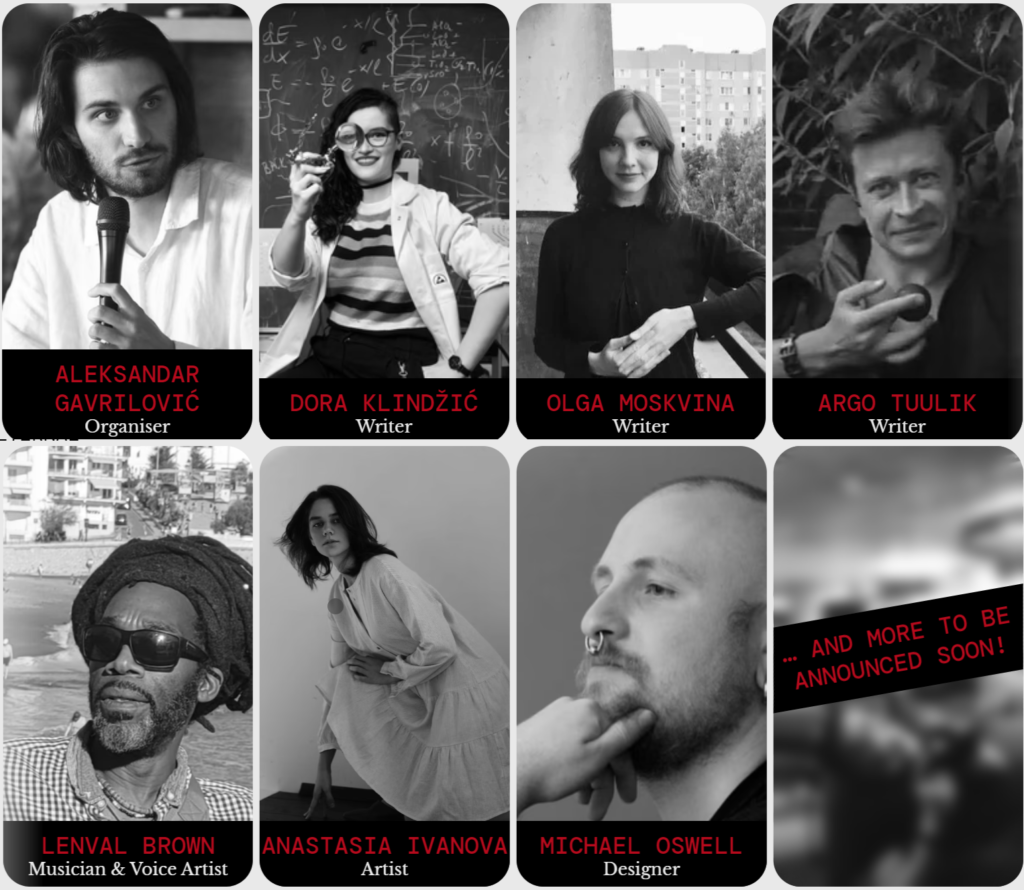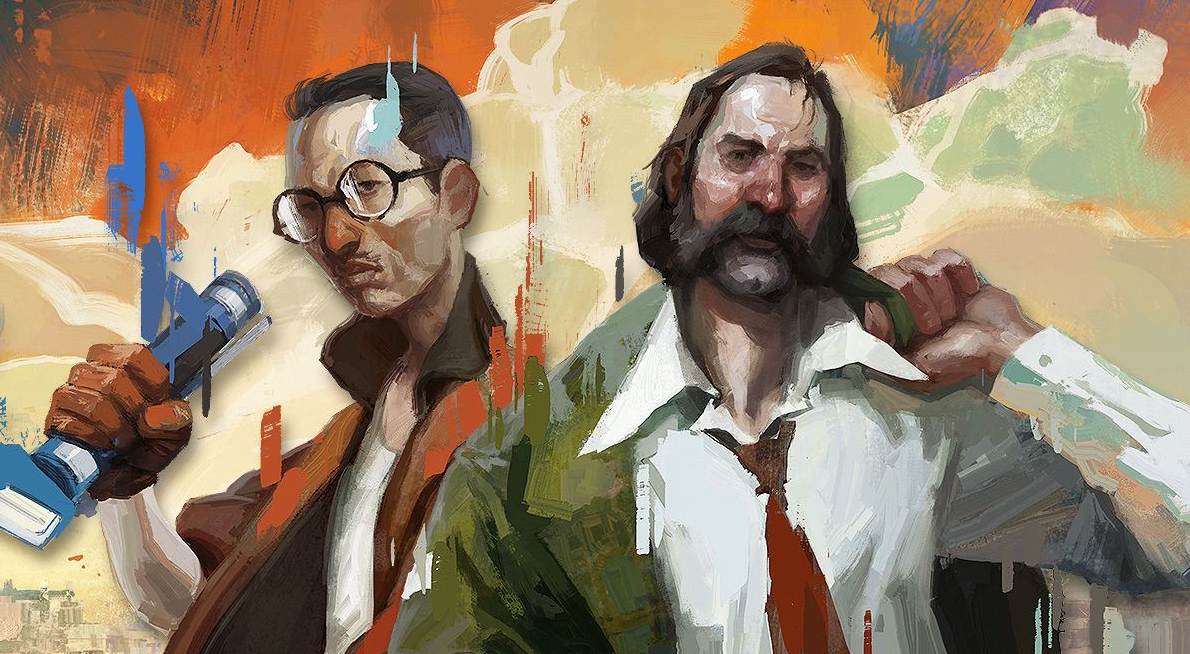Five years after Disco Elysium shattered the boundaries of what an RPG could be, the creative team behind it has fractured in the wake of ZA/UM’s public disputes and layoffs. With key figures ousted and the follow-up project canceled, four new studios have emerged from the fallout. Each is now poised as a contender for the “spiritual successor” to one of the most critically acclaimed RPGs of all time—creating a race for the next big genre-defining title.
Whilst none of these new studios are officially working on a direct sequel to Disco Elysium, they have all capitalized on the publicity generated by their connection to its creation. Also, with the emergence of the news of all these ‘successors’ being similarly timed, the “spiritual successor” topic feels like a Game of Thrones-style struggle for power, each studio vying for the throne. (See the post below)… which of the five Houses will fans be backing most?
This raises an important question for fans of the genre and Disco Elysium universe: without an official sequel from the original creative minds of Elysium, can these new, smaller studios, create a world that stands up on its own two feet as a deserving “spiritual successor”? Does this story end with five new groundbreaking RPGs, or five games that fall short whilst trying to show ‘The Expression’ of Disco?
The Studios So Far:
The future of Disco Elysium’s legacy remains uncertain. What is clear, however, is that the spirit of innovation that fueled the original game is now scattered across multiple teams, each determined to make their mark on the next generation of RPGs. Along with the anticipation and excitement for fans of a potential five new games, there is also a political meta-narrative unfolding, as we watch these studios differentiate themselves from one another. One of the original creatives involved in the Elysium universe and tabletop, Martin Luiga (who is currently absent from all five successors), tweeted below, noting the early differentiations we can already see between them.

Summer Eternal:
Summer Eternal stands out as the most interesting of the five, especially for those who care about the current industry climate. They are clear about not making a sequel to Disco Elysium, but the spirit of Disco resonates in their statements:
“this Industry has been pilfered by corrupt executives, by the vulgar profiteering of corporate bodies moving like leviathans in the dark, burning human fuel in their instatiable lust for money” – Summer Eternal’s manifesto.

Founded by many of the people who remained at ZA/UM, including writer Argo Tuulik, to work on its official (now cancelled) follow-up project, Summer Eternal has taken a bold anti-corporate stance in how they intend to build their new studio.
The timing of Summer Eternal’s manifesto is poignant. For the game industry, 2023 and 2024 have been years scourged by mass layoffs, worker mistreatment, and corporate consolidation, such as Microsoft’s acquisition of Activision Blizzard. Summer Eternal hopes to spark a revolution in response. Beyond the game, the studio’s proposed setup and pointed manifesto are clearly born out of disgust at the treatment of the ex-ZA/UM team and the treatment that creatives and artists receive in the industry as a whole.
The entire Disco Elysium situation, with four spin-off indie studios sprouting from the layoffs, is a microcosm of what is happening in the industry on a larger scale. Indie studios have become a beacon for creator-led and creator-owned game development. Summer Eternal’s stance echoes industry-wide discontent, mainly regarding worker rights. Parallels can be seen in ongoing unionization efforts like those at Activision Blizzard and Microsoft’s ZeniMax, which unionized in 2023.
The team quotes Mao on their website, but this time the ‘single spark’ of revolution isn’t just about a game; it’s about sparking a ‘prairie fire’ that will reshape the power dynamics in the gaming industry.
Longdue Gaming is another contender in the race to claim the legacy of Disco Elysium, though they’ve remained notably secretive about which former developers from ZA/UM are involved. Despite the lack of transparency around their team, Longdue is making bold promises with their upcoming project, particularly its Psychogeographic RPG element. This innovative concept ties a character’s mental state directly to the game world, causing it to shift and morph in response to the protagonist’s psyche.
Longdue is determined not to replicate the past. “We’re focused on innovation and trailblazing, not replication,” said Riaz Moola, the studio’s chairman and investor, in an interview with Gameindustry.biz. Their upcoming game aims to offer a multi-layered RPG experience, built around complex dialogue choices, branching storylines, and consequences for every decision. Their job listings give a glimpse into the scope of their ambition, seeking writers to help craft a universe where two interconnected worlds reflect one another in mysterious ways.
While much of their team remains undisclosed, Longdue has revealed that their core staff includes developers who worked on ZA/UM’s canceled Disco Elysium sequel. So far, Riaz Moola and Grant Roberts, the studio’s narrative director—who brings experience from major studios like Splash Damage, Rocksteady, and Bungie—are the only named figures.
Dark Math Games:
Dark Math Games wasted no time in launching a Steam page with a game announcement and trailer. Their ties to Disco Elysium come from Timo Albert, the art director and tactical lead, and Kaur Kender as an investor. Kender was thrust into the public eye by his lawsuit against ZA/UM, which was later dismissed. However, while Kender is listed as involved with Dark Math Games, he is marked as ‘resigned’ rather than active, according to GameIndustry.biz. Dark Math Games have claimed to be a “breakaway group from the original development team” but promise to bring something “fresh to the table” in the form of “less words. And a few more bullets, perhaps,” which, alongside promising a “unique companion dynamic,” shows some effort to differentiate their formula from Disco Elysium.
The features that XXX Nightshift will be bringing to the genre include:
- “Seismic Choices” in deep single-player role-playing
- “Three-dimensional protagonist” in the Volumetric RPG style.
- “20 Traces across four categories” to shape your character
- “A truly unique companion dynamic” for added choice
- An original science fiction setting: True Detective RPG
ZA/UM canceled an official Disco Elysium standalone sequel earlier this year but still owns the IP and universe, despite no longer having the creative minds behind it. This studio, by name and ownership, is responsible for the critically acclaimed masterpiece Disco Elysium. However, after public scrutiny and the termination of all original creative minds behind Disco Elysium, their ‘ownership’ of the franchise is up for debate—hence this article. Many of the team now at Summer Eternal, who were working on this canceled project, believed it could have brought a redemptive arc for ZA/UM, proving that they could still deliver great RPGs without Kurvitz and Rostov. This opportunity was lost when the project was shelved, and the team was dismissed. Time will tell if ZA/UM has similar redemptive projects in their pipeline or if that was the last opportunity to be kept bookmarked by fans.
Less is known about what Robert Kurvitz is up to after being in the spotlight for arguably the wrong reasons (described as a “damaging presence to work with” by many ex-colleagues), a situation well-covered by the team at PeopleMakeGames. However, as the “father” of Elysium, alongside Alexander Rostov, there remains great anticipation among fans for what they might produce next.
What this means for the fans?
For fans of narratively rich RPGs, the splintering of the original ZA/UM team could signal the beginning of a new era for the genre, with the potential for several groundbreaking titles. However, this division also brings the risk of divided attention among the studios. From the chaos and fallout of Disco Elysium’s tumultuous story, a competitive precedent has formed. Now, all five studios will need to deliver not only originality to establish their identity, but also excellence to not be overshadowed by the others.
Whether this sparks a resurgence of innovative games or marks the lingering burnout from five years of corporate missteps surrounding Disco Elysium, one thing is certain—this story is far from over.

